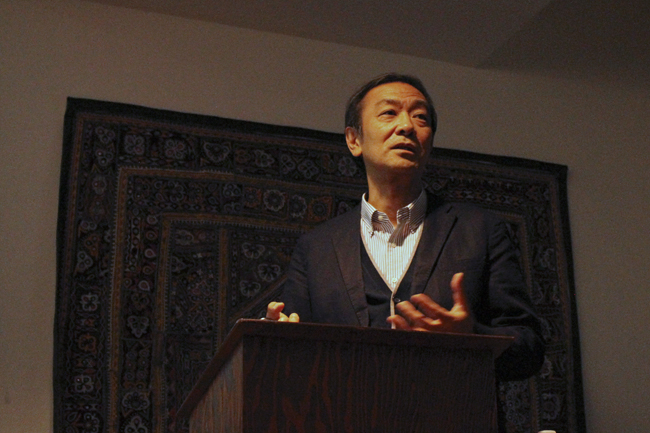The development of the Internet and social media has created a space for people to share diverse ideas and views — but not necessarily to converse with others from different perspectives, according to a visiting professor.
“We are living in a world where things are sharable but not shared,” said Koichi Iwabuchi, media and cultural studies professor from Monash University in Melbourne, Australia. “Many polarized voices are competing to gain visibility without dialogue among themselves.”
The digital media has increased the accessibility of information, but many of the circulating ideas are harmful, according to Iwabuchi.
“[Digital media] has become a center for the connection of new ideas, but we need to rethink the nature of these kinds of connections,” Iwabuchi said.
Iwabuchi used examples of increased Japanese hate speech against Koreans to show how digital media has the power to spread prejudice as much as it has the power to spread information.
“The tolerance of such bigotry was made possible by the Internet,” Iwabuchi said.
Despite the negative impact Iwabuchi states digital media has on societies, Plan II freshman Samantha Gorny said she believes social media is combining with global media to create a space where ordinary citizens have an opportunity to be heard.
“Videos, blogs and forums are challenging the traditionally conservative media coverage of issues and events,” Gorny said.
Five hundred million tweets are sent out per day on Twitter, and Facebook has more than 1 billion active members, according to each of their websites. Experts, as well as everyday users, have attributed the urgency of the Arab Spring, a region-wide revolution that began in December 2010, to social media’s ability to distribute information quickly.
According to chemistry senior, the Internet provides a platform for revolution and freedom of expression, but its openness inevitably results in negative push back.
“These people get so far lost in their own opinions, where they continue to get positive feedback from the same kind of people,” Nyugen said. “There are no opposing opinions because the opposing opinion is doing the same on another website.”
The speed at which information spreads and the anonymity provided through digital media results in more people participating in hateful behavior, according to Iwabuchi.
“The most threatening to us is not [a mob], but those invisible people who click to endorse the racist action and speech — the silent clicking majority,” Iwabuchi said.





















